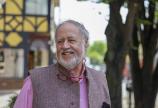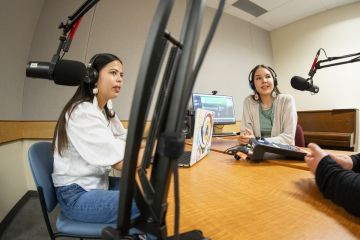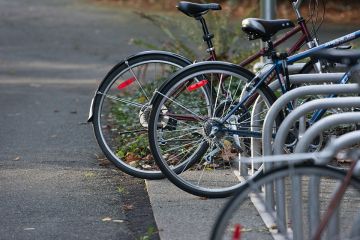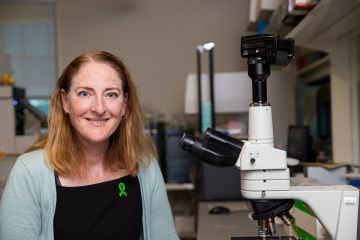UNESCO Co-Chair Budd Hall reflects on community engagement
Human and Social Development, Education
- Tara Sharpe
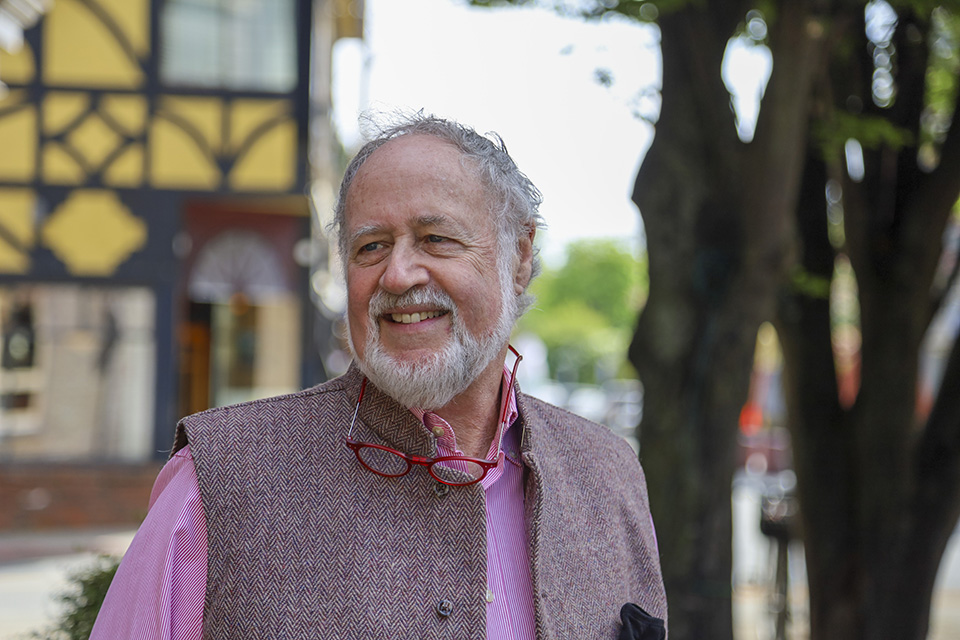
UVic professor emeritus and scholar Budd Hall is a tireless advocate of collaborative research and a long-time ally of social justice movements, traditional knowledge keepers, research networks, grass-roots practitioners and more. Together with many partners over the years, he has helped propel the movement of community-based research across Canada and around the world.
On May 6, Community Based Research Canada presented Hall with its 2021 Research Leadership Award at this year’s C2UExpo virtual awards gala in recognition of Hall’s many years of service and his innumerable accomplishments nationally and internationally.
Among his countless contributions, Budd was founding director at UVic of Canada’s first office of community-based research on a university campus and, in 2008, helped hosted CuExpo, the largest gathering focused on community-university engagement in Canada at the time. More recently, Hall played a role in the linking of norms for the United Nation’s list of 17 Sustainable Development Goals (SDGs) published in 2015 by the UN to the global community-based research movement.
Hall sat down for a virtual Q&A a few days ahead of the C2Uexpo gala and reflected on what the award means to him, what the future of CBR looks like and its significance for our university and other higher-ed institutions.
Hall is the UNESCO Co-Chair in Community-Based Research and Social Responsibility in Higher Education, based at UVic’s Centre for Global Studies and the Faculty of Human and Social Development and, in India, at the Society for Participatory Research in Asia under the co-direction of fellow co-chair Rajesh Tandon.
Q. What does this award mean to you personally?
It was a surprise. A huge, huge surprise.
I’d heard rumours about the award and had heard all these names being thrown around.
I was really surprised. And very, very pleased. I’ve had a lot of recognition, I’ve been fortunate; but this particular award probably means more to me than any of the others that I’ve ever had. Two reasons: one, it’s evidence, if there’s an organization that can give an award of this nature, it’s proof that our movement has reached a certain level of maturity. And that gives me great pleasure.
Second, to be recognized by one’s peers is very gratifying and I don’t take it for granted at all. There are a lot of amazing people in this country who’ve contributed and built what we’ve got going. So I feel very fortunate and very honoured to have been chosen.
Q: Budd, would you share some reflections on what you’ve observed about CBR and campus-community engagement over the years?
Change takes longer than we think. When I first started doing this work in the mid 1970s – and then later in the second half of the ‘70s, in building our first international network – I thought four or five years and universities would be talking about all this stuff.
But it didn’t really happen in Canada until the early 2000s. And it’s really in the last 10 years that we’ve seen the proliferation of community-university research structures. And so, that’s 40, 50 years? Changes takes time.
History is very often on the side of justice. And if you think about all the distance we’ve come, from medieval days to the early rising of democracy and women’s vote (which isn’t that long ago, surprisingly enough) and all of the things we’ve been through, we are in a better place in the world.
We’ve got challenges that we didn’t anticipate would be so serious. COVID is one. And certainly, the climate crisis is the next thing that collectively we are going to have to tackle.
But change does happen. And universities can be places that support this kind of change.
Q. What would you say are the biggest challenges and also the best opportunities ahead for CBR and for higher ed institutions, organizations and individuals?
Movements are not abstract sociological constructs. It’s about people.
—UNESCO Chair Budd Hall, UVic scholar and professor emeritus
It’s hard work. It’s being persistent. It means writing the articles, holding the meetings, lobbying, trying to influence funding agencies – every time and every place you get a chance to speak out and say why this kind of work is important.
It’s no secret as to why these kinds of social-justice oriented innovations come about. It’s because of people. Movements are people.
And we need to find a way to provide more learning opportunities for the new generation.
Students can go all the way through – depending on which field you’re in at UVic – and never hear of this kind of a concept, this idea (there are a lot of different words for the same thing) – participatory, engaged, co-construction of knowledge – and the same thing is true across Canada. We need to greatly expand the learning opportunities.
Another challenge is the dominant criteria for promotion and tenure. It’s 25, 30 years behind. There are different ways to count excellence.
And we have also not yet begun to build research capacity into our civil-society organizations. If we’re talking about co-construction of knowledge, social movements and community organizations, like PEERS or Cool-Aid, we’ve done a good job over the last 20 years of building up a whole cadre of people. We’ve got lots of professors at UVic who are skilled in community-based research. But if you go to the community organizations, how many full-time people are working as knowledge workers? Very few.
This is a national challenge. Funding councils aren’t going to give it to community groups. Other organizations have to do that. We have to develop that research capacity so that there really is a dialogue of equals.
It’s a dialogue of equals. We’ve made a lot of progress but the vision, if you think about this as a knowledge democracy, is the recognition that knowledge is created in all places and that lived experiences are equal to knowledge produced in the academy.
—Hall
Q. What will be the single most pressing issue in your opinion in the next five or 10 years?
Promotion and career advancement criteria is really slowing things down. We need to open it up to recognizing excellence in broader ways. So, more emphasis on impact and more emphasis on a much broader understanding on engaged scholarship.
UVic, together with most of the universities in the world, is based upon a 550-year-old Eurocentric idea of the world, of how to understand the world, of what counts and how knowledge is constructed. If we think of Indigenous ways of knowing, where you can’t separate the head and the heart, where you can’t separate human from all other forms of life, where place is absolutely critical, where you wouldn’t think of doing research just to add another chapter in a book that’ll be read by nobody? Adding a course or adding four or five readings to everything else, as we know, isn’t enough. It has to go deeper. We have to think about the very architecture of knowledge.
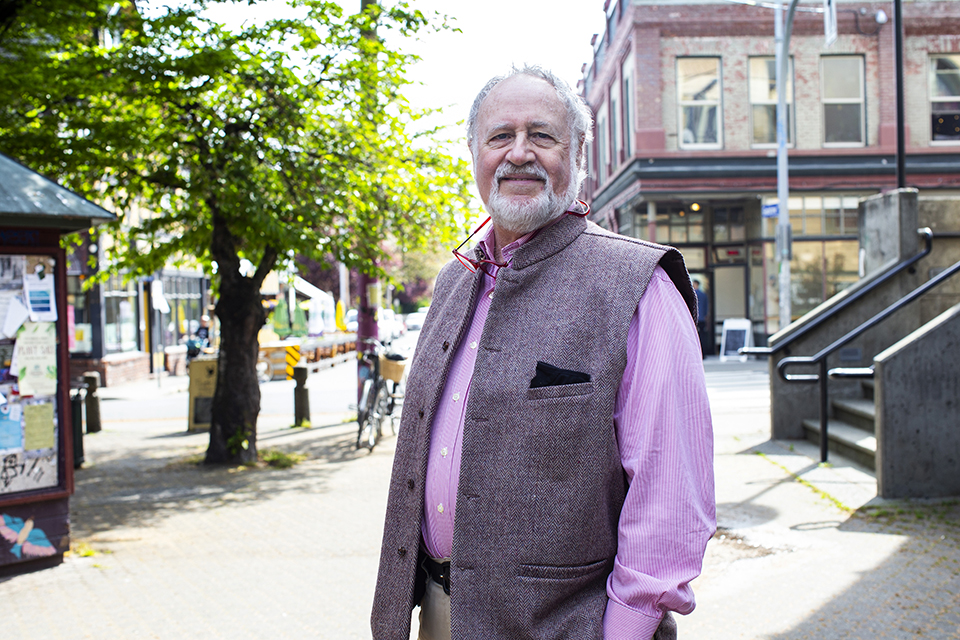
Q. Where do you see UVic within this movement in the next few years?
We’re at a very good time. No reason why UVic shouldn’t be seen as a global leader in community-based research.
We were certainly the first in English-speaking Canada to come up with the idea of [an office of community-based research on a university campus]. Wonderful work is being done all over the place [at UVic]. I’d like to see a bit sharper of a delineation in the specificity of the three dimensions: community-engaged learning; the service and partnerships; and the community-based research.
Q. What’s the first word that comes to mind when you hear the term “community-based research”?
Hope.
Learn more
Photos
In this story
Keywords: community, research, award, international, administrative, partnerships, UNESCO, public administration, Centre for Global Studies
People: Budd Hall

